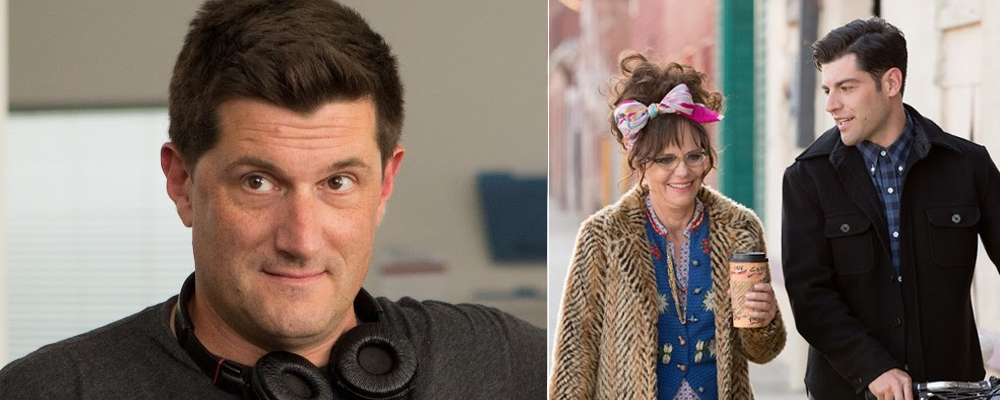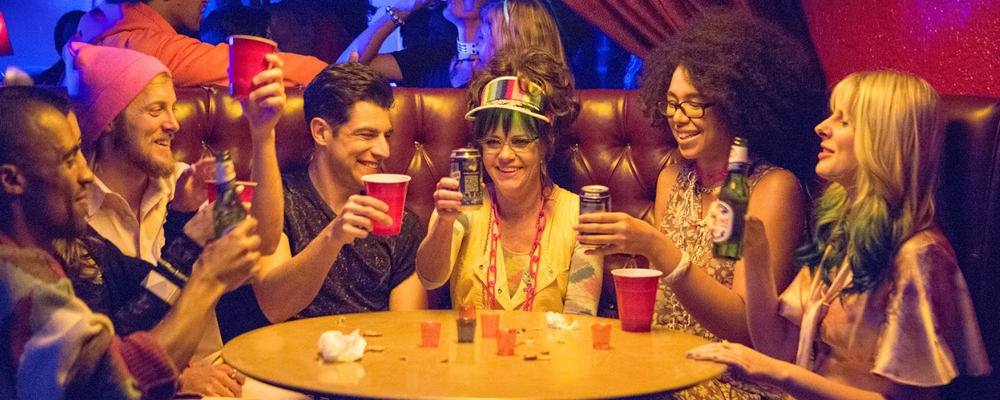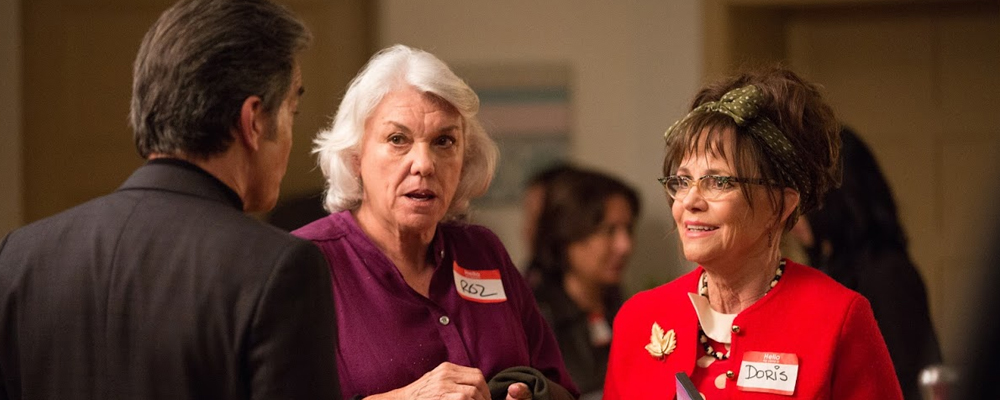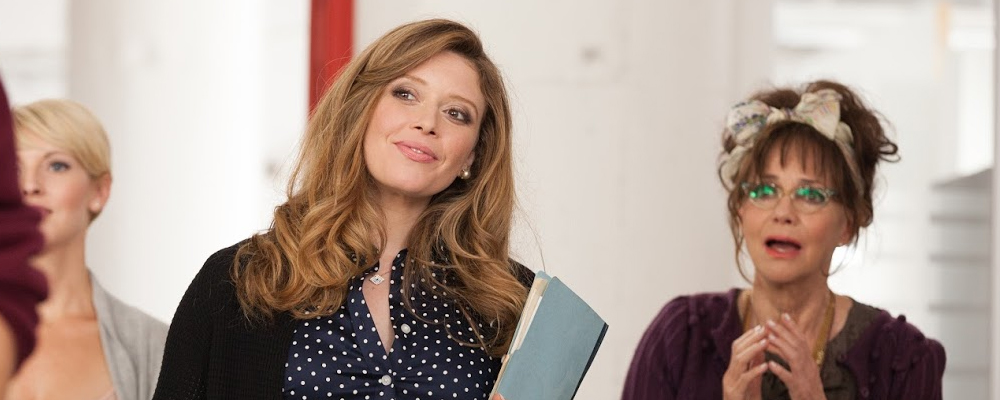Director Michael Showalter Discusses Latest Film ‘Hello, My Name Is Doris’
Sandra Miska
Michael Showalter, a major force in the comedy world, tells the story of an eccentric older woman named Doris (Sally Field) who falls for her younger co-worker John (Max Greenfield) in “Hello, My Name Is Doris.”
Showalter first came to prominence in the early 90s as a cast member on the groundbreaking MTV sketch comedy show “The State.” He went on to co-write and star in the 2001 cult comedy “Wet Hot American Summer” as well as write, direct and star in “The Baxter.” Most recently, he has turned his sights to Netflix, co-writing and acting in the prequel series “Wet Hot American Summer: First Day of Camp” and directing episodes of “Grace and Frankie” and “Love.”
Showalter sat down and spoke with Entertainment Voice about “Hello, My Name Is Doris,” working with Sally Field and Jack Antonoff, film vs. television and how a certain classic 80s romance inspired his latest film.
“Hello, My Name Is Doris” is such a unique story. What inspired you to tell it?
The movie is based on a short film that was written and directed by Laura Terruso who co-wrote the movie with me. It’s about an older woman named Doris who has a crush on an intern in her office – a 19-year-old intern. And I just thought the character was such an interesting comic protagonist that I had not seen before who was this sort of. . . this kooky old lady who was so unlike what I think I would have imagined her to be like. She’s mischievous and she’s eccentric so I wanted to create a whole world for her and imagine her whole life and that’s where we got into the hoarding and her mother; the idea that she lived with her mother her whole life, to create a whole backstory for her and then to introduce the character of John. Whereas in the short film the character is a 19-year-old intern; in this movie he’s in his 30s and he’s much more of an adult. It’s a much deeper connection that they have.
You’ve said Sally Field was your first choice to play Doris. How did you go about contacting Sally?
We just sent her the script through her agency and just said, “Here’s this movie. Here’s an offer for Sally Field to play the lead role. Would she read the script?” She read the script . . . and her agents called us and said, “She’s read the script. She’s interested. She’d like to meet with Michael and talk about it.” I had coffee with her and she had a bunch of questions and concerns . . . . We kind of hit it off and then maybe a couple of days later her agent called me and said, “She’s going to do the movie.” And I was like Oh my god, that’s the most amazing thing ever! It’s a tiny low-budget movie and she doesn’t do that kind of movie. So it felt like I’d won the lottery or something. I was so excited and then ever since it’s just been a dream. Working with her was so incredible. Her performance was just fantastic in the movie.
The music in the film is really different. How did you go about getting the musicians together and deciding what music to use?
Do you mean the [fictional musician] Baby Goya? We knew what kind of musician he was. He was sort of into the electronica kind of thing. Jack Antonoff was someone that I kind of knew. He’s a very popular pop artist and so we thought wouldn’t it be cool if Jack Antonoff were to actually play this character?” He actually wrote the songs. We gave him titles that we had written [like] “Dance, Rascal, Dance” and “Lasers and Lace” and then he wrote the songs in the character of Baby Goya. The rest of the music was a combination of my composer Brian Kim and then there’s a band called Pearl and the Beard who have three songs right at the end of the movie that are all really big parts of the movie as well – when [Doris] is riding the ferry home after the Thanksgiving party at John’s there’s a really sad song that plays; and then when she’s cleaning up the house we hear another song; and then at the very end of the movie in the elevator a song plays. That’s all one band called Pearl and the Beard.
You’ve worked in television as well as film. Which do you prefer? What are some notable differences?
With a film, you put all of your eggs in to the basket of this one story. In TV you get to tell multiples of stories. But they’re both, you know, very connected in a lot of ways. They’re both just the joy of the creative process of starting with an idea and then seeing it through, writing it and then all of a sudden you’re in production; and you’re casting it and you’re starting to build the sets or the locations and it’s all sort of coming to life. Then you take that and you hone that into something in the post-production process. They’re both great for being able to engage in the creative process of making something.
In your mind, do you know what happens to Doris and John after the credits roll?
I don’t. I want the audience themselves to guess about it and come up with their own theories about it.
Is there anything in the film that’s taken from your own life? Sally was saying that Doris is you.
I identify with Doris a lot. When you’re writing something, there are always pieces of your life or experiences everywhere, in every character and every scene.
Max said that the film was inspired by “Pretty in Pink.”
It wasn’t inspired by it but it’s a reference. It’s one of the movies that I thought about a lot when we were writing the movie. “Pretty in Pink,” which is, of course, the story of Molly Ringwald’s character Andie who ends up kind of having a relationship with the most popular guy in school, essentially. He kind of breaks her heart and that’s a lot of what’s happening in this, too. Doris is that outsider, and John is the most popular guy in school and they make this connection. I grew up loving those movies so I liked some of the themes of that [film], adolescent themes of identity and first love and things like that.
You have experience as an actor. Do you think that helps out when you’re directing?
Maybe. Mostly just in being able to know what it’s like to be an actor and what it’s like to be directed and so I maybe know some things I like and some things I don’t like. I certainly have a lot of respect and appreciation for actors and what they do. I admire the skills of being an actor so [I’m hoping] that comes in handy.
What are you working on next?
I’ll be doing a movie this summer that stars Kumail Nanjiani and that’s called “The Big Sick.” I’m excited to do that. We’re shooting it in New York.
“Hello, My Name Is Doris” opens March 11 in Los Angeles and New York and will expand to select cities March 18.




